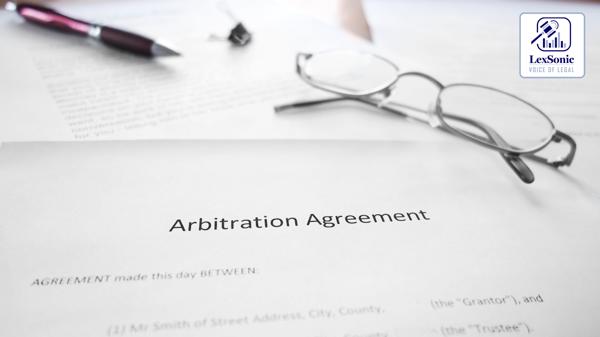Bombay High Court Orders Deletion of Non-Party Respondent and Vacates Asset Disclosure Order in Arbitration Enforcement.
04 July 2025
Arbitration Law >> Business & Commercial Law
The Bombay High Court heard two Interim Applications of Ningbo Aux Imp & Exp Co Ltd v/s Amstrad Consumer India Pvt Ltd & Another seeking the deletion of Respondent No.2 from a Commercial Arbitration Petition and the vacation of an order dated March 12, 2025, which directed the disclosure of assets by Respondent No.2.
The core argument put forth by Respondent No.2 was that they were never a party to the arbitration agreement or the arbitral proceedings from which the award originated. Therefore, the arbitral award, sought to be enforced under Part II of the Arbitration and Conciliation Act, 1996, could not be enforced against them.

The Petitioner contended that these applications were not maintainable, arguing that Respondent No.2 had waived their right to challenge the disclosure order. This was based on the fact that Respondent No.2's advocate, despite appearing in court on April 3, 2025, after the ex parte disclosure order of March 12, 2025, did not immediately raise the issue of Respondent No.2 not being a party to the arbitration. The Petitioner cited the Budhia Swain case, arguing that a judgment cannot be vacated on grounds that could have been pleaded earlier, and that the proper remedy would have been an appeal.
Upon review, the High Court found that the order directing disclosure against Respondent No.2 on March 12, 2025, was indeed passed ex parte and in ignorance of the fact that Respondent No.2 was not a party to the arbitration proceedings. The Court highlighted that Sections 46 and 48 of the Act, governing the enforcement of foreign awards, explicitly state that an award is binding only on "persons as between whom it was made" (Section 46) and that enforcement can be refused if the party against whom it's invoked was not given proper notice of the proceedings (Section 48(1)(b)).
The Court further noted that the Petitioner's own affidavit revealed an unsuccessful attempt to make Respondent No.2 a party to the arbitration, which was rejected by the arbitral tribunal's case manager. The Court rejected the Petitioner's argument that the case manager's decision was not a formal rejection by the tribunal, stating that the Petitioner should have pursued available remedies within the arbitration if they believed the rejection was incorrect.
Given that Respondent No.2 was not a party against whom the arbitral award was made, the Court concluded that there was no jurisdictional basis to enforce the award against Respondent No.2, nor to compel asset disclosures from them, as such disclosures would not be in aid of a maintainable prayer.
The Court also clarified its interpretation of the Budhia Swain ruling, emphasizing that while a right to vacate a judgment can be lost by waiver, this principle does not apply when the order was passed without jurisdiction or in ignorance of a fundamental fact, such as a necessary party not being part of the original proceedings. The Court found that the ex parte order of March 12, 2025, fell into this category, being passed without jurisdiction over Respondent No.2.
Therefore, the High Court allowed both Interim Applications, ordering the deletion of Respondent No.2 from the petition within four weeks and vacating the order directing asset disclosures by Respondent No.2. The Court noted that Respondent No.1 had already made disclosures and scheduled a further hearing for July 18, 2025, to consider additional reliefs against Respondent No.1.
Arbitration and Conciliation Act, 1996
